#fascism outside europe
Explore tagged Tumblr posts
Text
Payne argues that the syncretic, authoritarian nationalist regime was by far the most common system of the twentieth century beyond either liberal democracy or state socialism, and divides it into seven useful subcategories (pg. 468-9 in A History of Fascism, and in an earlier form, 201-3 in Comparison and Definition):
Nazism, the only interwar fascism to successfully consolidate a total party dictatorship over all aspects of society;
Fascism, which was never able to shed its conservative benefactors and remained until 1943 a relatively heterogeneous coalition of the PNF with the Church, military, monarchy, bureaucracy, etc
Axis satellite and puppet regimes during WWII, whether fascist (Croatia, Hungary) or not (France, Slovakia)
Hybrid regimes combining a more traditional and reactionary right-wing dictatorship with a subordinate but genuine fascist component (e.g. early Francoist Spain, Legionary Romania). I would call these “semi-fascist”
Regimes based on the military and bureaucracy but trying to generate a controlled fascist movement from the top down. Payne lists the JRZ in Yugoslavia, OZN in Poland, FRN/PN in Romania, Iron Wolf in Lithuania, 4th of August regime in Greece, and interestingly Perón’s Argentina; I would add Japan, Portugal etc and call these “renovationist” or “kakushin” after Kasza’s typology.
Conservative military-bureaucratic regimes, short on ideology and with no substantial attempts at innovation or mass mobilization (Primo de Rivera’s Spain and to a degree also late Francoism; the Colonels’ Greece, the Operation Condor dictatorships, and various other straightforward military regimes; Payne includes Vargas here but he seems closer to 5 imo, or the eighth I mention below).
Controlled (or “illiberal”) democracies which impose a relatively restrained form of authoritarian rule over representative and pluralistic institutions (Horthy’s Hungary, Piłsudski’s Poland, and for that matter Orbán’s Hungary and Duda’s Poland; the PRI, BJP, Putin, Tories, and so on).
One Payne doesn’t specifically include, weirdly enough, are national developmentalist regimes striving for sovereignty, unity, and rapid economic and cultural modernization under a single-party ‘guided democracy’ with the eventual goal of something like parliamentary liberalism and joining the family of ‘developed’ nations. Like 5 and 6 they are based on the bureaucracy and army, but have distinct revolutionary goals.
Another would be personal or neo-patrimonial dictatorships in which power and legitimacy flow from a single person and their patronage network, largely ambivalent to the institutions and social structure they’ve embedded themselves in except insofar as it undermines their authority. These overlap with 7 but not entirely, and 6 or 8 might evolve into this. E.g. Trujillo, the Shah, Stroessner, Mobutu, Suharto.
0 notes
Text
.
#not looking forward to a weekend of western europeans shitting on the us for queerphobic policies#when they can't even get off of their high horses and go outside and realize its happening there too#do they know actual queer people live in the us and are actively being harmed?#are they paying any attention to the queer people in their own country?#are they watching the drastic rise in far right politics in europe?#baby it's called a GLOBAL rise in fascism for a reason#ugggghhhhhhhh
3 notes
·
View notes
Text

I'm actually 100% sure of that. In 50 years, the only people who will remember Israel (outside of the direct region devastated by their fascism, of course) will be pathetic LARPíng neonazis who will revere the insane failed Israeli ethno-nationalist experiment, and historians studying apartheid. The settlers who came from there will run back to America and Europe, like they are already doing, and they will fuck up things there for a long while, because they are fascists, but they will not be able to remake the failed experiment of Israel. Like Rhodesia, within our lifetimes, a moment will come when the majority of people in the world will not even remember that Israel ever existed. And Palestine will be Free.
#free palestine#palestine#zionism#fascism#apartheid#rhodesia#israel#from the river to the sea palestine will be free#personal#history
286 notes
·
View notes
Text
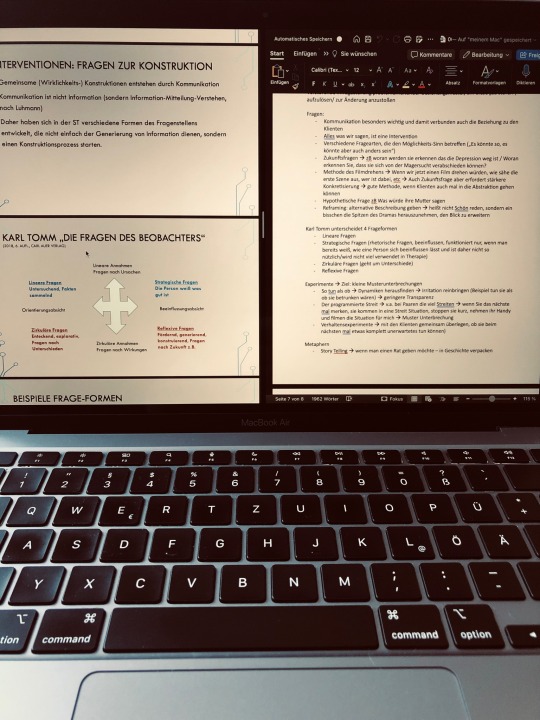
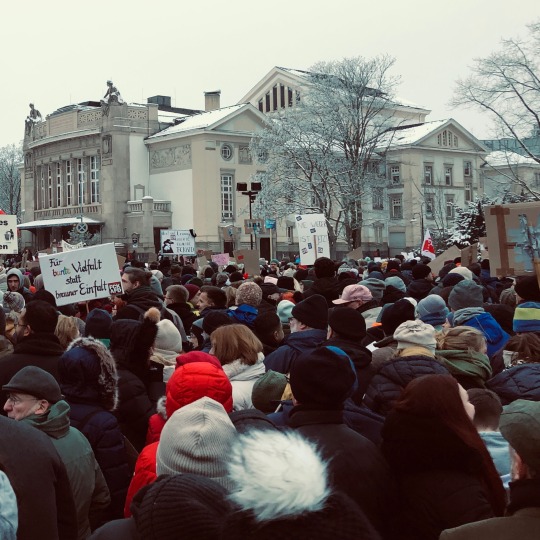
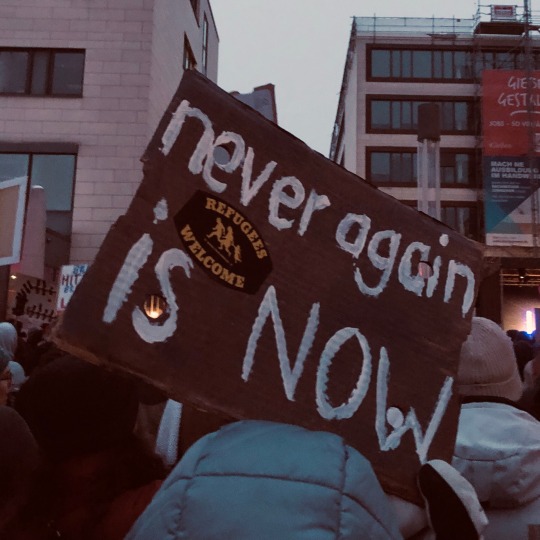

21.01.24
Due to events that were recently uncovered, there have been protests all across Germany against fascism, a particular right-wing party and right-wing extremism in general.
These kinds of right-wing movements have been on the rise not only in my own country, but all over Europe. It often leaves me feeling helpless, like a passive bystander, only watching things go downhill without any chance to do something about it.
That's why it has made me very happy and proud to see so many people in my country standing up against it these past days. I think it's so important to just stand up, go outside and be loud about it. Simply to show up. We can not let these terrible people have the stage, we can not let them lead the narrative. They are not Germany. We are.
#ganz deutschland hasst die afd#mine#personal#antifascist#politics#germany#protest#diary#studyblr#psychology#psych studyblr#dark academia aesthetic#chaotic academia#romantic academia#dark academia
514 notes
·
View notes
Note
Hwy dod we even need to send more money to Ukraine tho like we’ve already supported them plenty! But let Europe pull their weight and we can go back to spending that money on American policies
Do you read like, any news outside Tumblr, any Ukrainian perspectives, any basic analyses of the conflict, any rationale from Democrats or Congress, or anything? Because, in brief:
Ukrainians are currently facing a full-scale genocide. It has been going on for over a year and Russian military leadership has every plan to continue until fruition. If they stop resisting, there will be no more Ukraine or Ukrainians. So all the "appeasers" or "realists" insisting that Ukraine should "give up land for peace" (which notably worked so well with Czechoslovakia and Hitler in 1938) are basically deciding that it's fine to let the genocide be carried out, if it's even minorly inconvenient for us. Putin and cronies have repeatedly stated that if they are successful in taking Ukraine, they will go further. This is the exact scenario that leads to the "escalation" and/or WWIII that various people keep wringing their hands over. It is far more just and safe for Ukraine to be supported now and to stop that before it gets even worse.
America is not actually giving over buckets of black cash, regardless of what various bad-faith takes claim. They are handing over weapons valued at various amounts of money, along with some financial and budgetary aid. A lot of these weapons are older and would cost more to decommission than they cost to give to a sovereign democracy fighting for its life against an imperialist autocratic neighbor. This is some tiny amount like 5% (if that) of America's bloated military budget. And again: it's actual weapons valued at a certain dollar amount. These cannot be spent on American domestic policies.
The idea that helping Ukraine is directly coming out of our own pockets or preventing us from spending as needed on our own needs is propaganda. It is not good to repeat it.
I wrote this post the other day about why Putin is trying so hard to break American/Western support for Ukraine, and why the hard-right MAGA has enabled him in it. Putin's Russia is the motivating nexus, coordination, and funding center for Russian/European/American far-right theocratic fascism. This whole "America Only" is the exact rationale that appeals to said far-right domestic fascists and gives Putin and other imperial expansionist kleptocrats the justification to just throw away post-WWII international order and declare that any larger and more powerful state can systematically eradicate any neighboring country, claim its territory, destroy its government, kill its people, and get away with it. Because why would they stop, if there aren't any consequences and they are rewarded for it?
Putin has repeatedly interfered in American elections to help Trump and the Republicans. That should tell you something about who he sees as most favorable to his interests and what he would do again if allowed to emerge victorious.
Europe IS actually pulling its weight! They just brought all 27 defense ministers to Kyiv, they have been working on Ukraine's accession talks, they have committed all types of weapons (including the long-range missiles that the US still won't clearly authorize), they've committed a new tranche of 5 billion euros in long-term assistance, etc. But the whole "we should pull out of NATO and leave Europe to fend for itself" was a key isolationist and xenophobic Trump idea. We can see what that led to.
American aid is vital to Ukraine's continued existence as a sovereign country, period, and it is in American interests to continue to provide it as agreed upon. Not least because such an egregious betrayal of a democratic ally would empower the fascists of the world, both Russian and American, and because as noted, if this conflict was not stopped and got bigger, it would then involve American troops. It is a moral, democratic, political, and ethical imperative. This is not a difficult call or a complicated situation, regardless of what the Online Leftist tankies and the MAGA-world nutcases (because horseshoe theory) want you to think.
Слава Україні.
The end.
455 notes
·
View notes
Text
In April 15th, 1920, the National Committee of the Federation of Socialist Youths met in Madrid to, taking the initiative over the PSOE, take the decision of joining the Third International, founded by the Bolshevik party. After a convoluted process that lasted until the 14th of November of 1921, the Communist Party of Spain (Spanish Section of the Communist International) was born, pejoratively called "The party of the 100 children" by its opponents.
The Komintern's policy in its early days was one of the "only front", stating that capital could only be beat via the united effort of all communists in all spheres of life. Its motto became "Towards the Masses!". In Spain, this period was marked by Primo de Rivera's dictatorship between 1923 and 1930, during which almost every political group was banned. The social-democratic PSOE and UGT avoided this by remaining "neutral" towards the dictatorship. Some members of the PSOE even collaborated, like Largo Caballero, who became Rivera's Minister of State. The Communist Party maintained its sole struggle during this time, gaining popularity among the Spanish proletariat.
When the dictatorship ended and the Second Republic was proclaimed in April of 1932, in the midst of the effects of the 1929 capitalist crisis, the 1931 strike in Sevilla and 1932 general strike, the PCE had found itself unable to work outside the dynamics imposed by the dictatorship's repression, and only began to regain its force after the selection of José Diaz as general secretary in September of 1932. The party corrected some of the left-communist and sectarian mistakes that characterized the period of the dictatorship.
The PCE took on an even bigger role in the organization of our class after its crucial role in the October insurrection of 1934 in Asturias, during which the proletariat took power in the mining basin and most of Oviedo, via the Peasant and Worker Alliances, expressions of the aforementioned only front strategy decided by the Third International. The government of the Second Republic, carrying out the needs of a section of the Spanish bourgeoisie, brutally repressed the Asturian revolutionaries, with general Francisco Franco at the helm of the military's intervention. Among the victims was Aida Lafuente, a militant of the Communist Youth and an example of bravery.
This glimmer of worker power was contextualized in the Black Biennium (1933-1935), a period of the Republic when reactionaries accessed the government and expressed the most violent tendencies of the Spanish bourgeoisie against the more than 30,000 political prisoners they took, and against the rapidly developing workers' movement.
It was during this time in Spain and the whole world, when the Third International identified the generalized rise of fascism and reactionarism, and adopted in its 7th Congress, during the summer of 1935, the policy of the Popular Front, failing to link the anti-fascist struggle with the struggle for workers' power, instead advocating for alliances with "socialist" parties and other bourgeois-democratic parties, placing the fight for socialism-communism in the background.
Half a year after this decision, the Popular Front alliance won the elections in the 16th of February, 1936. Shortly after, and only a year after the 7th Congress, sections of the Spanish and international bourgeoisie countered this victory with a failed coup d'etat by fascist generals in the 18th of July, 1936. They had the backing of the nazi-fascist powers in Europe and the complicity of the "democratic" capitalist powers, who were anxious about the strengthening proletariat in Spain. Curiously, the plane that carried Franco from his exile in the African colonies to Tetuán in north Africa, the Dragon Rapide, originally took off from London.
The biggest supporter of the Spanish Republic was the USSR, that, through the enormous effort of the Third International and the Communist Parties in 52 countries, against the banning of volunteering by many of those 52 countries, organized the enlistment, falsification of documents, logistics, arrival and other matters for the arrival of around 35,000 workers, peasants and intellectuals from all over the world. Under the single banner of the International Brigades, and for the first time materializing the historic slogan Workers of the World, Unite!, the Volunteers of Liberty, as they also came to be known, gave their mind and their body to the cause of the Spanish people, armed with the teachings of marxism-leninism. They knew that it was no longer a fight for only the Spanish. As J. V. Stalin put it in October of 1936:
The workers of the Soviet Union are merely carrying out their duty in giving help within their power to the revolutionary masses of Spain. They are aware that the liberation of Spain from the yoke of fascist reactionaries is not a private affair of the Spanish people but the common cause of the whole of advanced and progressive mankind.
In July of 1936 there already were Brigadiers present in Spain, for the occasion of the Popular Olympics (in boycott of the Berlin Olympics) organized by the Red Sport International and the Socialist Worker Sport International in Barcelona, they were among the first to take up arms against the coup d'etat. The Executive Committee's Secretariat of the Third International formalized in the 18th and 19th of September the creation of the International Brigades, which began to arrive in Spain the 14th of October of 1936. Despite the propaganda levied by fascists and bourgeois historiography, the importance of the International Brigades is undeniable today.
After the integration of the Brigades into the Popular Militias in the 22nd of October, the Brigadiers began their training in Albacete and saw action for the first time the 8th of November in Madrid, with the 11th and 12th Brigade. Militarily, the Brigades were present and indispensable in every major battle of the war, but they also played a moral role. After every capitalist power had abandoned the Spanish people to their fate with the policy of non-intervention, the compact and disciplined columns that marched through the streets of Madrid singing songs like The Internationale, Young Guard, or The Marseillaise, made up of workers who barely knew the language but were willing to make the ultimate sacrifice, decidedly improved the morale of every militia and civilian in Madrid and in Spain.
But even greater than the support of the Brigades were the more than 300,000 strong military detachments sent by Germany and Italy, with the implicit approval of capitalist democracies, including the Popular Front in France, whose efforts of non-intervention focused exclusively on the republic. And it was the strategy of the popular front that forced the PCE to sideline the revolutionary potential of the hundreds of thousands of militants, instead preserving the legitimacy of the bourgeois republic.
By 1938, the republic was on its last legs and, wishing to evidence the foreign involvement on the fascist side, declared to the League of Nations in the 21st of September that they would disband all volunteers enlisted after the 18th of July, 1936. The 16th of October, 2 years and 2 days after the arrival of the Brigades, the League of Nations' International Committee arrived in Spain to verify the disbandment and departure of the Brigadiers. No such inspection was ever made on the fascist side.
According to the International Committee's report published on the 18th of January, 1939, there were a total of 12,673 Brigadiers in Spain, less than half of the total number of volunteers at around 35,000. They began to depart Spain on the 2nd of November, 1938, through the French border. During the process of departures, some Brigadiers were murdered in Spain, others died protecting the fleeing republicans and hundreds of thousands of refugees at the crossing in France. This was when Mexico, and especially the Communist Party of Mexico which pressured the government, took on around 1,600 brigadiers, mainly Germans, Poles, Italians, Austrians, Czechoslovaks and Yugoslavians, who could not safely return to their homes due to the advance of fascism within their countries. The debt owed by the workers of the world, especially the Spanish, to the Communist Party of Mexico is immeasurable, along with every other Communist Party that helped and the Third International.
The dissolution of the International Brigades did not achieve the result desired by the Republic. Instead, their retreat towards the end of the Battle of the Ebro only accelerated the morale defeat of the republican militias. Most of the brigadiers who survived the war but could not be repatriated in time did not have a pleasant fate. Most of those ended up in the French concentration camps of Gurs, Argèles-sur-Mer, Saint-Cyprien and Barcarès, Septfonds, Riversaltes, or Vernet d'Ariège.
Their fight was not in vein. The experience gained by the few who survived at a high cost proved essential in the development of their own parties, and soon enough, anti-fascist resistance. Everywhere that people took up arms against the fascist occupation, whether inside or outside the concentration camps, ex-Brigadiers were present, continuing the fight they started in the 18th of July, 1936, well after the war that had began that day was history.
Back in Spain, while the moribund republic thrashed for the last few times, the bourgeois republican government, headed by the social-democrat Juan Negrín, began to isolate the PCE with the support of the trotskyists and anarchists. It came to a close after the coup d'etat by the republican general Casado, during and after which the communist militancy was oppressed, and the fascist fifth column that had remained in Madrid opened its gates to the fascist military. This is how the fascist dictatorship began in Spain, with a betrayal by the Popular Front's social-democrats and by the democratic-bourgeois powers of the world. They couldn't help but mirror the collaborationism happening on the world stage; the UK was actively looking for an alliance with Germany, and every other capitalist country was making business with the looted property. All for one purpose that united them; the destruction of workers' power in the form of the marxist-leninist parties that around the world were beginning to challenge the capitalists, with the Third International at the helm.
These are the lessons that Spain and the world learnt during and after its fierce resistance against fascism. No popular front with bourgeois-democrats is sustainable, and their class character will always prevail above the superficial differences with fascism. The only viable tool is the organization of the social majority within the Communist Party, with proletarian internationalism and an altruist disposition as principles. No matter how much social-democracy may fear fascist privatization, and no matter how much they disrespect bourgeois democracy, the class interests that guide them will always prevail when faced with a capable mass of organized workers.
The progressive Popular Front in France, the "appeasing" government in the UK, and the nominally anti-violence liberal democracies, did not ever attempt to do anything else than giving carte blanche to the fascists and hindering their rivals. The betrayal of Spain, Austria, Czechoslovakia and Poland were all made with the same reasoning: the alliance with fascism to destroy communism. There are no reasons that make the opposite possible today. When reactionarism picks up traction in lockstep with the deepening capitalist crises, all of these bourgeois-democrats some "leftists" like to place their hope in will not vary substantially from the script they followed 85 years ago.
Quedad, que así lo quieren los árboles, los llanos, las mínimas partículas de la luz que reanima un solo sentimiento que el mar sacude. ¡Hermanos! Madrid con vuestro nombre se agranda e ilumina
Rafael Alberti, A las Brigadas Internacionales
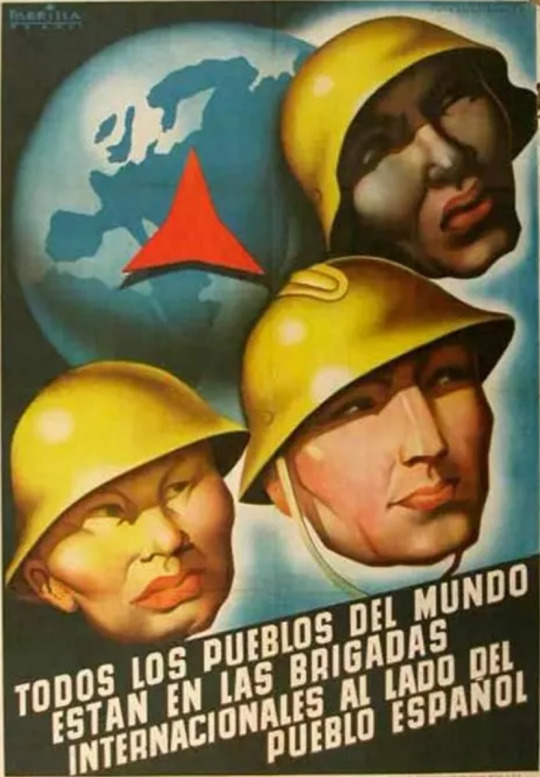

123 notes
·
View notes
Text
The Beast & The Church in 'Black Death Rising'
I'm writing a religious horror rpg, in which the End Of Days is in full swing in 15th century Europe. I figured it'd be worth it to talk about that game's religious perspective.
So I'm going to do something inadvisable, and talk about religion from a christian perspective. (religious/setting design ramblings under the cut)
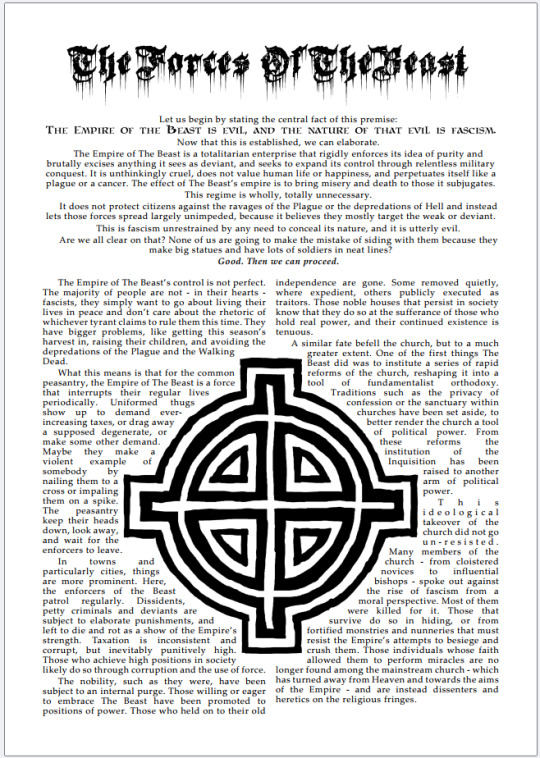
Some context. I'm a quaker; for those less invested in minor christian dissenter sects, I'll give a brief summary. Quakers are a sect going back to the 17th century, with a strong focus on egaletarianism and individual conscience. No clergy or heirarchy, no formalised doctrines, and - historically and currently - a lot of focus on social justice issues. Honesty, equality, pacifism and simplicity as core value. So that's the overview.
This is, you will note, a stark contrast to a lot of what Christianity is currently, and has historically been. Which is to say, quite often on the side of the wealthy, the societally entrenched, and the oppressive.
I am also, as it happens, very openly and obviously queer. As you can imagine, this makes me really quite uncomfortable in a lot of 'christian spaces'.
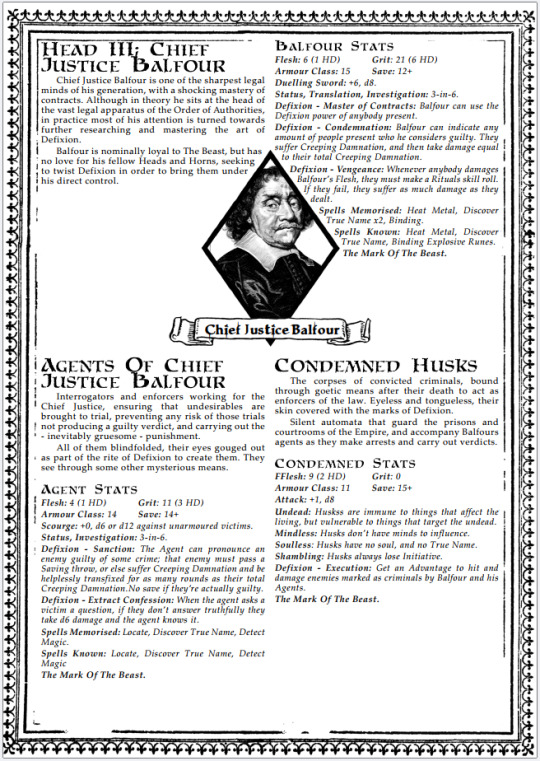
So. Let's turn our attention to the Book of Revelations, as the various ideas in there are a lot of the game's inspiration. Revelations is written extremely abstractly, with dense metaphorical language rather than a direct accounting of events. There are, needless to say, a wide variety of ways to interpret the text, but I will focus on my own.
A key feature of Revelations is the subversion of religion; the idea of a false prophet turning religion away from its moral/spiritual purpose, and making it a tool for politics, leading to the rise of 'the beast' to power. It's made clear that as the beast seizes power, it goes on to use that power to persecute the outgroup (with whom the text's sympathies lie) and that a church controlled by and reverent of the beast becomes evil and totalitarian, leading to widespread suffering.
The parallels to the state of christianity in the modern day are, to my mind, quite apt. A wide faction - 'conservative christianity' to be polite about it, or christian nationalism to be more blunt - aligns itself with the oppresser over the oppressed, concerns itself with worldly wealth and power, and is actively and openly and inexorably tied to dangerous political forces. That mainstream christianity frequently acts in support of fascism is hard to miss.

There is a particular horror, I think, to seeing representations of one's faith hollowed out and distorted, emptied of their spiritual value and instead becoming a tool for evil. The perversion of what should be sacred has a huge potential for horror.
This is, after all, a particular horror one encounters in a regular basis in the real world. I mean, fuck, one simply needs to see Kenneth Copeland speak for 30 seconds to get a sense of something deeply, deeply wrong.
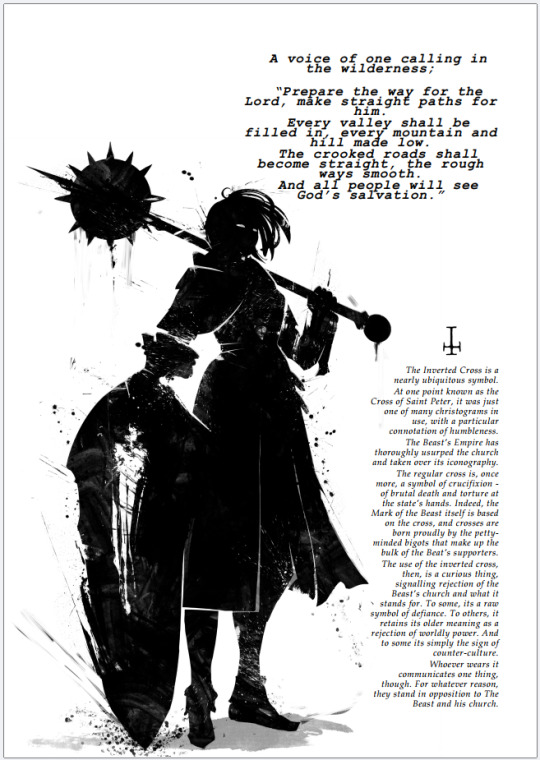
So, this is the horror the game seeks to capture and accentuate. The sense of what should be holy having been emptied out and used for evil. The twisting of faith to become a tool for fascism.

To this end, the game treats aspects of Revelations quite literally. The Beast is, in fact, the leader of a vast and horrible fascist empire that is the cause of misery on a vast scale. Key to this is the total cooption of the church. The 'pope' is a reanimated corpse issueing proclamations at the Beast's direction, and the church is an engine of propaganda and inquisition that serves to enforce the empire's orthodoxy and stoke hatred against the Empire's outgroups.
This is not to say that faith is absent, but those possessing true spiritual conviction (and with it, in some cases, the ability to perform miracles) are definitively outside the church; actual faith is the domain of religious dissenters and heretics. PC clerics are not members of the church, they're actively persecuted by that church for - essentially - their refusal to spiritually sell out.
(Also, critically, miracles are not the sole domain of christianity; the game treats Jewish and Muslim figures as equally capable of performing miracles, and grants relics associated with those religions equal potency to christian ones; what matters is spiritual conviction, not one's specific denomination).
Other aspects of The Beast's Empire followed from this. Inquisitors and paramilitary agents are common enemies, and the 'seven heads and ten horns' are taken to represent The Beasts inner circle of most powerful servants.
In particular, I've given the Beast's empire it's own form of magic, Defixion, with the name taken from old roman curse-tablets. Defixion is, essentially, the magic of spiritually selling out. In exchange for eroding the user's soul, they become bound to The Beast and his empire; this gives him incredible power over them, but also grants them power based on their position within the Empire's heirarchy. Importantly, it's totally, one-hundred-percent off limits to player characters; playing as the fascists simply exists outside the scope of the game. Instead, Defixion is an explanation for why the Empire's agents have scary monster stat-blocks.
The choice of what to make The Mark Of The Beast was surprisingly easy; it's a cross, the same one that is embraced by fascist groups such as Stormfront.
(This also ties in with the use of the inverted cross as a counter-cultural icon; it's historically been a symbol of humility before God, and in the modern age is associated with strongly anti-church sentiments. In a setting where the church has turned away from God and towards hateful political power, those two meanings can go hand in hand.)
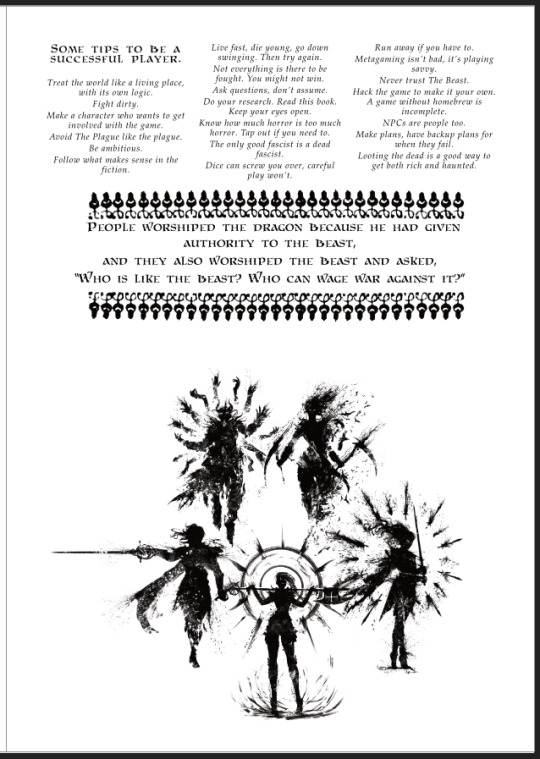
In conclusion: "I know writers who use subtext, and they're all cowards."
76 notes
·
View notes
Note
Are you actually a Stalinist? What the hell
'Stalinism' isn't an ideology.
I'm a Marxist, given the proven correctness of Marx's scientific analysis of society - which is to say dialectical, historical materialism. Further, a Marxist-Leninist, given Lenin's contributions to socialist theory in the age of imperialism - contributions proven valid in practice by the formation of the first socialist state. In analysing said socialist state, it's apparent that it vastly improved the quality of life - the longevity, nutrition, and education - of millions upon millions of people. It was instrumental in the defeat of fascism in Europe, and its eventual destruction brought about mass starvation, impoverishment, and brutal wars between formerly fraternal nations.
It wasn't perfect - because it was a real, historical thing made up of real people in a real environment, not some utopian thought experiment. It had errors in its handling of some issues, and in its entire conception of others. But it was vastly better than the foundation it was building off, and a massive improvement over its surroundings. None of the contenders to 'Stalinism' have done so. Trotskyism and its ilk managed to produce only millions of newspapers, and promptly disappears from relevancy once its job, of establishing 'left' support for the impoverishment and exploitation of post-socialist peoples, is completed. Various anarchisms have failed to maintain themselves for any longer than a couple years, even with outside support, and still managed to commit the very atrocities and banditry they claimed to prevent.
This isn't really a question anywhere else in the world but the imperial core. Being a communist means being a Marxist-Leninist and appreciating the successes of the Soviet Union, which were primary, along with its errors, which were secondary. It's perfectly common to despise that, but I'd implore you just accurately accept yourself as being an anti-communist, rather than couching your opposition around some nonexistent strain of communism you posit as opposed to true leftism.
But, hey, if it separates the wheat from the chaff, then sure, I'm a 'Stalinist', whatever that means.
443 notes
·
View notes
Text
whenever anyone talks about "neither right wing nor left wing but something else" or "third position" or "a position outside of capitalism and communism" it should always immediately set off alarm bells in your head btw. it's literally neo-fascism, nazbols are major proponents of it and it's making a resurgence particularly in europe at the moment, and it is wholly rejected by actual communists
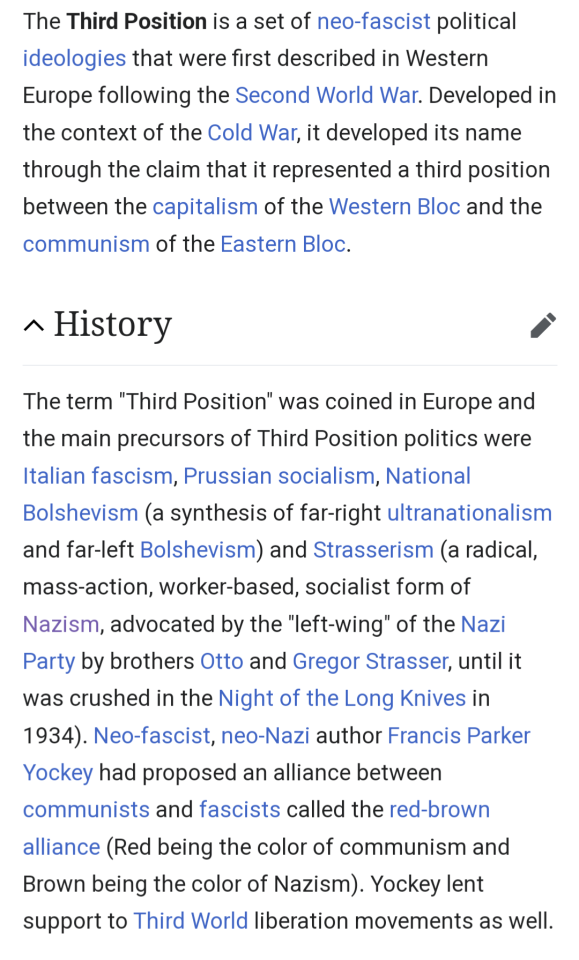
281 notes
·
View notes
Text
The Nature-Culture Divide

Something I have seen a lot of people within the Solarpunk sphere talk about and wonder is: "When did we stop seeing ourself as something outside of nature?" And given that I actually had a module on that (Social Geography, best module I ever had, given we had an anarchist professor!) I thought I could quickly explain this one.
So, the names come, in the end, from Latin and back when those words were considered in Latin, the difference was, that nature was a thing that was innate, while culture had volition behind it. You could change nature into culture by putting work into it.
Something that might surprise you is, that the idea of nature then was never quite big for most of European history. And let me make one thing clear: While we have these ideas also played with in Buddhist culture - especially in East Asia - the way we define it right now is a Western idea.
And that idea... Well, that idea came with colonialism. The thing many do not realize is, how much of the rules and "lines in the sand" that we use in our culture came from colonialisation, came from the desire to make "our" culture different from "theirs". It is shown in the way we eat, in the way we raise children, in the way we view gender and sexuality. And, yes, in the artificial border between nature and culture.
Before I tell you more about this, let me please say here: Yes, this is contradictive. I am aware of it. I am not the one who came up with the contradiction. White settlers did that all on their own.
When the settlers came to America they found a landscape very, very different from what they were used to from Europe. After all, Europe has been changed through human hand for at that point about 1600 years. (And for you Europeans out there: Researching how much forest your local area might have lost through the Romans is always a "fun" thing to do! Because the Romans destroyed a lot of European ancient forests.) In Europe, even at the wildest places, there was usually some evidence of human habitation - but this was not true for the Americas. Not because there were no people there, but rather because the people interacted with the environment very differently.
See, the European idea - while never quite that defined until this point - was really, really based on this thought that nature can be turned into culture. And that this transformation was in fact a good thing to happen. So, when the settlers arrived in the Americas they did not see "culture" there, only "nature" and set out to turn that "nature" into "culture".
Of course, we - modern people living today - do realize that indigenous people had in fact cultures of all sorts and that the actual difference was, that they just did not see that culture as something different from nature, rather than a part of it. Because their culture had not been influenced by Romans. But the settlers back then did not see this or rather did not want to see this. So they "cultured" the land, with the ideas about nature and culture being further formalized at that point.
It kinda stayed like this until the late 19th century, when Madison Grant, the originator of eco fascism came to be influencial. And now he saw something that the settlers until this point were unable to see: The indigenous people do stuff with the nature around them! They change it! For example through controlled burning of forests and things like that.
And this made Madison Grant very angry, because he was very much off the opinion that nature should be "unsoiled" by human hands. So... he made sure that those indigenous people got once more pushed out of the areas they were living, with the same areas being declared natural parks and no longer interfered with by humans (except, of course, all the tourists who destroyed it bit by bit). Leading... To a lot more wild fires.
So, where does this leave us in terms of the culture/nature divide?
Well, the idea has been there since ancient Rome and has very much influenced how much we view nature as its own thing. But within Rome nature was still not quite seen as the opposite of culture - as one could turn into the other. Under the Roman view an abandoned house or a field that was no longer cared for would turn back into nature, while anything could become culture just by interacting with humans.
The modern view really came through colonialism and the way colonialist did not understand (and did not want to understand) indigenous practices. This made people more and more drift towards the understanding of humans being an entirely different thing from nature.
But this is wrong, of course. We are part of nature. We are just animals with fingers and slightly larger brains. And many indigenous cultures understood this. In the end it was the greed of some that made us loose this connection to nature. And that is exactly why we are in this climate change related mess right now.

#solarpunk#history#culture#nature#culture-nature divide#colonialism#anti colonialism#indigenous knowledge#indigenous people#national parks
173 notes
·
View notes
Text
I've been comforting people by telling them how fascism burns itself out, pointing at the history of Germany and Argentina and saying "Ten years. Try to make it ten years." I have not been telling them that Putin's been in power for 26 years, nor have I been pointing out that Francoist Spain lasted 39 years, nor have I talked about the general reinforcement of dictatorships and kleptocracy around the world. The city I live in has been doing crony capitalism for far longer than the alt-right's been around. We, the human race, do not have a fix for these sorts of organizational problems.
There's a bad century coming, with agriculture not ready for climate change, with whole parts of the world ready to go mostly-uninhabitable and with plenty of anger ready and waiting for all the migration that'll be triggered by that. We don't know how people will react to Europe going cold after the AMOC collapse, we don't know how people will react when coastlines around the world go under (China and India's coasts are of particular concern here since they have the most people), and we don't know what it'll look like when the Middle East starts to hit black flag temperatures on the regular and it becomes impossible to step outside for any extended time. There's nowhere to run, and all the governments coming to power on the promises that they can make it better are going to be flailing around desperately as it turns out you can't persuade or bribe an ocean current.
And on the other hand, maybe we'll get fusion working and free energy will revolutionize greenhouse farms. Maybe everyone will have temperature controlled buildings, we'll build water purification plants, and geoengineer swaths of the world to adjust temperature via solar reflection. Maybe the various demographic crashes will rewild massive swaths of land and biotech will bring us new crops and extinct animals and vaccines for cancer and the common cold. Maybe we'll have all those things and the migration and the anger all at once. People are afraid; people are right to be afraid.
If I keep my head down and get lucky, I still expect to lose my social security (and any chance of a comfortable retirement), to lose more than a few of my friends (to distance or otherwise), to need to make it through hurricanes and floods and droughts, to lose access to a great deal of the information I've enjoyed for so much of my life, and to live in fear for many years. I expect riots and repression. In the worst cases, I'm worried about military drafts and rationing and related corruption. I dream of a house with a basement of supplies and a guest room to rent out, to shield myself from these things, but I fear being trapped by investment in a single place. And like so many other people, I'm alone or mostly alone. There's a community or two I'd like to join, but even when I attend their events, I stand on the outskirts and can't see a way in. I'm stubborn; I'll keep trying and likely make some progress eventually, but all the big feelings are outside my range of experience and people can tell. I will always be something of an alien, something of an outsider. Something of an acceptable loss.
People are afraid; people are right to be afraid. And I'm right there with them. I only wish I could see a solution.
#wild thoughts like going back to school to try to help with fusion or agritech#I hate school and it makes me want to die but if I can't fix politics (and I cannot) then maybe I can at least try to mitigate the horrors#in the meantime: paperwork and driving lessons and interview prep? Anything to be ready to react#I hate the uncertainty and I hate having no good options#one year after the next
21 notes
·
View notes
Text
[T]he Ossewa-Brandwag (the Ox-Wagon Sentinels – henceforth the OB) grew directly out of the intensely nationalistic emotional climate which was created by the [Great Trek] centenary celebrations of 1938. The founder, Colonel J.C. Laas [..] explained that the OB would achieve its aims by celebrating national days, honouring historic sites and individuals, and encouraging traditional gatherings and celebrations. There was clearly a need for this sort of general, social activity amongst Afrikaners, and even when characteristics of a more sinister nature began to develop in the OB, it remained for many something of a social organization. It was clear that the [National Party], with its intense debates among party leaders, many of whom worked in secrecy in the Broederbond, was failing to involve the mass of supporters or to provide satisfactory social outlets, and with the outbreak of the Second World War, many thousand more members flocked to the banner of the OB. [..]
[B]y the end of 1940, it was clear that the OB had outgrown the organizational capabilities of its founder. Laas was removed, and at the beginning of 1941, it was announced that the OB had a new Commandant-General. This was J.F. (Hans) van Rensburg [..]. As Secretary for Justice and a member of the Defence Force, he attended military manoeuvres in England and Germany, and in 1936, at the Olympic Games, van Rensburg met Goebbels, Goering, and Hitler. This meeting had an overwhelming emotional impact on him: van Rensburg considered him a saint, and was converted to national-socialism. As he was to say: “I could only call myself a race-conscious Afrikaner, with tendencies which many people today would regard as ‘fascistic’.”
[..] In October 1940, in the small town of Cradock in the Cape, Dr. Malan [of the National Party] had met members of the Council of the OB. This meeting produced the Cradock Agreement, by which the two organizations, now rivals for the soul of Afrikanerdom, defined their respective spheres of action. The NP was to be the political organization, while the OB was to work in the cultural sphere. From the start, however, van Rensburg’s speeches and public style were disturbing to many members of the NP. Van Rensburg toured South Africa, creating a stir wherever he went, and recruiting more members. Part of the excitement was caused by the presence of the Stormjaers or Storm troopers who attended upon van Rensburg and acted as his bodyguard. They were an elite within the OB, and were clearly modelled on their Nazi equivalent. Together with the special salute, and the speeches deriding the efficacy of a system based on party politics, the Stormjaers clearly embodied the movement of the OB, under van Rensburg’s leadership, towards the national-socialist model.
The Stormjaers, however, were not content with merely posing as Nazi sympathizers and the movement led to numerous sabotage attacks on installations on the Rand in 1941, rioting between members of the Union Defence Force and those against the war in Johannesburg in 1941, and a spate of bombings and attacks again in 1942. The government’s response was to make it illegal for civil servants to belong to the OB, and to call in all rifles in private possession. Hundreds of OB members were arrested, and some were interned and charged. Amongst their number was ‘general’ Balthazar John Vorster, a future Prime Minister of South Africa. [..]
Despite the Cradock Agreement, it was clear that the OB was becoming a political threat through its ability to appeal to the Afrikaners in general. As 1941 progressed, it became more apparent that NP dominance was severely threatened by the OB movement, and its talk of the futility of pursuing the goal of an Afrikaner republic by party political methods, at a time when the Nazis were sweeping to victory in Europe. [..] For some months there were gestures towards finding grounds for reconciliation, but by the beginning of 1942 all pretence was at an end. The NP and its newspapers supplied the authorities with information that led to the arrest of OB saboteurs and accused the OB of being implicated in acts of treachery, fraud and assassination.
Roberts and Trollip summarized the OB ideology as it appeared in 1942 and 1943 in the organization’s publications. They pointed out that, while many of the OB’s ideals were shared by the NP (for example, the desirability of an Afrikaner republic and Afrikaner dominance in South Africa), the OB had adopted ideas originally developed by fascists and Nazis in Europe. There was a sense in which the OB leaders saw themselves as pioneers in the political field, updating tired political philosophies and making them relevant. These men preached a philosophy which was anti-communist, anti-imperialist, and anti-capitalist insofar as capitalism was associated with imperialism and the foreign domination of the Afrikaner. They were pro-German, and advocated ideas of race purity. They were anti-intellectual, asserting the need to act and ‘think with your blood’. There was an exaggerated emphasis on physical well-being, and the place of the women in a closed domestic situation. They asserted the importance of the Leader, and advocated the establishment of a dictatorship in the service of the People.
But the OB, rather than being the party of the future, soon proved to be a movement of the past. By 1943, Allied victories had made it clear that a German victory was no longer imminent, and that the future rulers of South Africa would not have to negotiate terms with Hitler. Support for the OB began to dwindle. An attempt by the organization’s leaders to broaden its base by gaining the support of white workers used anti-capitalist rhetoric which was so uncompromising that the organization found itself being accused of having communist sympathies.
[..] By 1943, it was clear that the NP, with its policy of parliamentary rule and party political struggle for an Afrikaner victory in South Africa, had eclipsed the anti-parliamentary, national-socialist forces within the Afrikaner political movement. Although the struggle between the NP and OB was to continue, with an attempt to set up a national socialist front in 1944, and the banning of OB members from the NP in the same year, the OB’s membership and influence declined steadily.
Jeff J. Guy, ibid.
“The best-known of [interwar South Africa’s] overtly anti-semitic Nazi movements was The South African National Party (originally called The South African Gentile (Christian) National Socialist Movement), and its uniformed section, the Greyshirts, detailed to ‘protect’ its founder and leader, Louis Weichardt. The founding of the Greyshirts, he wrote:
was greeted with a howl of rage from South African Jewry and likewise from those renegade Europeans (‘Gentile Hoggenheimers’, as they are commonly called) who include the greater number of our professional politicians and who show more diligence and zeal than even the Jews themselves in exploiting and oppressing the unhappy South African people. ...
Weichardt believed that his party should work towards ending the antipathy between Afrikaans and English-speaking South Africans, and that the way to do this was to demonstrate the difference between ‘British imperialism’ – a positive force – and ‘capitalist-Jewish-finance imperialism’, which, if the Afrikaner but knew it, was the true cause of his suffering. Moreover, the British themselves had to realize that Britain’s world role had to be reformed “if White Christian European civilization is to be preserved as the directing force in the world.”
Much of the propaganda which the Greyshirts and other imitation Nazi movements in South Africa published was translated, or reproduced in the case of cartoons, directly from Nazi journals, and the Nazi periodical Blitz even carried a South African newsletter. It must not be assumed, however, that this sort of political pornography was easily accepted by a majority of Afrikaner Nationalists at first. In 1934, Die Burger attacked the authoritarian structure of the Greyshirt movement, and in 1936 [National Party leader] Malan was still able to attack anti-Semitism, although his statement was based on a broader racism. In South Africa he argued, “we cannot discriminate against the Jewish race or any other race. All who are white in this country deserve to stand on an equal footing politically and otherwise.”
— Jeff J. Guy, “Fascism, Nazism, Nationalism and the Foundation of Apartheid Ideology” in Fascism Outside Europe, ed. Stein U. Larsen
16 notes
·
View notes
Text
This is going to be an extremely messy post, but I’ve been grappling with the argument that “fascism” is nothing more than an exceptionalised label for the cyclical political crises of capitalism, as opposed to an actual historical force in and of itself - just as capitalism has cyclical economic crises which are necessary for its continued functioning, fascism represents the political crises of capital, a bulwark against class consciousness and socialist organising which threaten capitalist rule. Fascism does this by instead emphasising a racial or national consciousness, using white supremacy and the promise of property to divert people away from class consciousness. In Anatomy of Fascism, Paxton talks about how important the promise of property ownership to Italian peasantry was to establishing fascist rule there - class mobility up into the middle classes was used in concert with racial/national politics to stop people from identifying with the proletariat (“homeowners are too busy to be communists,” to paraphrase that American housing developer I forget the name of atm). This is especially weaponised against Jewish people, who are framed as having no national affiliation and are thus eternal outsiders to the bourgeois Christian homeland.
I have encountered a lot of definitions of fascism. The most productive and evocative definition I’ve found is Cesaire’s - colonialism come home. He was speaking of Europe when he said this, saying that Hitler was only doing what Europe did overseas. But what does this mean for settler colonial states? There is no “home” for colonialism to return to for countries like the United States or Canada, because this colonial process has to constantly and at all times maintain itself upon indigenous land in order for the state to continue to exist. The colonialism is always home, always domestic (while also obviously being exercised globally through imperial domination and violence, especially in the case of the United States). Are these states essentially fascist in conception? If this conclusion is true (which I’m leaning towards yes), is “fascism” a useful analytical category at all? If we speak of the political processes of capitalism when we speak of fascism, can we simply just call it all capitalism? It would be like if we called all periods of economic crisis “collapsism” and partitioned these periods of depression or economic instability into exceptional circumstances divorced from the history of capitalism (which we already have done with The Great Depression in the 1930s, or the 2008 Financial Crash - these are exceptional periods where something “went wrong,” where the system “failed”). Sitting with this conclusion for a moment, calling these processes fascist is to divorce them of their material history, to decouple them from the violence and exploitation inherent to capitalism, and to ensure that any analysis of fascism does not conclude with a call to abolish capitalism - for if fascism is merely an interruption of normal capitalist democratic functioning, then preventing future fascisms does not require the abolition of the current economic and political system.
I’ve been engaging with this essay recently, which calls liberals the “left wing of fascism,” and argues that liberalism, far from providing an alternative to fascist rule, instead provides a stabilising quality to it, acting as a stop-gap to the more destabilising right-wing bourgeois elements of capitalism. And despite these conclusions I still find fascism a useful label, both because I think it has a lot of strategic value to engage with particular historical periods (such as right now) as fascist - fascism as a label has widespread recognition, if not widespread understanding - and also because it provides a neat shorthand for the historical process of capitalist political decay.
Anyway I’m talking this all out publicly because I’m in the process of reviewing a lot of literature on the subject for my PhD, and I keep coming to this conclusion - that fascism is not “real” in the sense that it cannot be divorced from capitalism itself, and in fact is a necessary process to the continued functioning of capitalism - but I’m having a hard time seeing what analytical limitations this conclusion produces. I have so far been the most persuaded by post-colonial and Marxist accounts of fascism, but I wonder if multiple definitions of fascism are still strategically or analytically useful to use in concert with one another, even if I disagree with them
143 notes
·
View notes
Text
W.E.B. Du Bois, “On Stalin”
Joseph Stalin was a great man; few other men of the 20th century approach his stature. He was simple, calm and courageous. He seldom lost his poise; pondered his problems slowly, made his decisions clearly and firmly; never yielded to ostentation nor coyly refrained from holding his rightful place with dignity. He was the son of a serf but stood calmly before the great without hesitation or nerves. But also—and this was the highest proof of his greatness—he knew the common man, felt his problems, followed his fate.
Stalin was not a man of conventional learning; he was much more than that: he was a man who thought deeply, read understandingly and listened to wisdom, no matter whence it came. He was attacked and slandered as few men of power have been; yet he seldom lost his courtesy and balance; nor did he let attack drive him from his convictions nor induce him to surrender positions which he knew were correct. As one of the despised minorities of man, he first set Russia on the road to conquer race prejudice and make one nation out of its 140 groups without destroying their individuality.
His judgment of men was profound. He early saw through the flamboyance and exhibitionism of Trotsky, who fooled the world, and especially America. The whole ill-bred and insulting attitude of Liberals in the U.S. today began with our naive acceptance of Trotsky’s magnificent lying propaganda, which he carried around the world. Against it, Stalin stood like a rock and moved neither right nor left, as he continued to advance toward a real socialism instead of the sham Trotsky offered.
Three great decisions faced Stalin in power and he met them magnificently: first, the problem of the peasants, then the West European attack, and last the Second World War. The poor Russian peasant was the lowest victim of tsarism, capitalism and the Orthodox Church. He surrendered the Little White Father easily; he turned less readily but perceptibly from his ikons; but his kulaks clung tenaciously to capitalism and were near wrecking the revolution when Stalin risked a second revolution and drove out the rural bloodsuckers.
Then came intervention, the continuing threat of attack by all nations, halted by the Depression, only to be re-opened by Hitlerism. It was Stalin who steered the Soviet Union between Scylla and Charybdis: Western Europe and the U.S. were willing to betray her to fascism, and then had to beg her aid in the Second World War. A lesser man than Stalin would have demanded vengeance for Munich, but he had the wisdom to ask only justice for his fatherland. This Roosevelt granted but Churchill held back. The British Empire proposed first to save itself in Africa and southern Europe, while Hitler smashed the Soviets.
The Second Front dawdled, but Stalin pressed unfalteringly ahead. He risked the utter ruin of socialism in order to smash the dictatorship of Hitler and Mussolini. After Stalingrad the Western World did not know whether to weep or applaud. The cost of victory to the Soviet Union was frightful. To this day the outside world has no dream of the hurt, the loss and the sacrifices. For his calm, stern leadership here, if nowhere else, arises the deep worship of Stalin by the people of all the Russias.
Then came the problem of Peace. Hard as this was to Europe and America, it was far harder to Stalin and the Soviets. The conventional rulers of the world hated and feared them and would have been only too willing to see the utter failure of this attempt at socialism. At the same time the fear of Japan and Asia was also real. Diplomacy therefore took hold and Stalin was picked as the victim. He was called in conference with British imperialism represented by its trained and well-fed aristocracy; and with the vast wealth and potential power of America represented by its most liberal leader in half a century.
Here Stalin showed his real greatness. He neither cringed nor strutted. He never presumed, he never surrendered. He gained the friendship of Roosevelt and the respect of Churchill. He asked neither adulation nor vengeance. He was reasonable and conciliatory. But on what he deemed essential, he was inflexible. He was willing to resurrect the League of Nations, which had insulted the Soviets. He was willing to fight Japan, even though Japan was then no menace to the Soviet Union, and might be death to the British Empire and to American trade. But on two points Stalin was adamant: Clemenceau’s “Cordon Sanitaire” must be returned to the Soviets, whence it had been stolen as a threat. The Balkans were not to be left helpless before Western exploitation for the benefit of land monopoly. The workers and peasants there must have their say.
Such was the man who lies dead, still the butt of noisy jackals and of the ill-bred men of some parts of the distempered West. In life he suffered under continuous and studied insult; he was forced to make bitter decisions on his own lone responsibility. His reward comes as the common man stands in solemn acclaim.
94 notes
·
View notes
Text
LISBON—Maria Brites took one more carnation in her hands from a table covered in them. She carefully set the flower in a glass box. Brites, an accomplished 76-year-old art teacher, has made dozens of these graceful souvenirs for Portugal’s museums to preserve the memory of the so-called “Carnation Revolution” which changed her own and her country’s life. It was April in Lisbon and outside, tourists teemed through the streets in the capital of a liberal democracy ranked among the freest nations in the world. Joined by her two adult daughters, Maria began to sing “Grândola, Vila Morena.” Fifty years ago, the fascist regime installed by Antonio de Oliveira Salazar banned other songs by its author, Zeca Afonso, for his opposition to the dictatorial regime. On April 25, 1974, conspirators played “Gradola Vila Morena” on the radio at 12:20 a.m. The song’s powerful melody and lyrics signaled the beginning of the revolution.
“Land of brotherhood,” the lyrics exclaim, “the people are the ones who rule within you, oh city!”
Exactly half a century later, hundreds of thousands of Portuguese gathered in Lisbon to chant “No to fascism.” Banners strung throughout the city featured happy people hugging with the caption, “Europe is for you.” According to the Migrant Integration Policy Index, Portugal has the second-most favorable citizenship regime in the European Union, in terms of naturalization rates.
Over this period, Portugal has not just shed its dictatorial past, it has become a leader of multilateral democracy. Think of the EU’s Treaty of Lisbon, which helped to manage the bloc after it enlarged from 15 to 27 states, as well as Portuguese native António Guterres ascending to secretary-general of the United Nations in 2017. This spring, an absolute majority of Portuguese—81 percent—told pollsters that they were proud of the way that Portugal became a democracy. This process involved not just ending its dictatorship at home, but also liberating its remaining colonies in Africa.
When I visit Portugal and observe this pride in action, my mind inevitably goes to post-Soviet countries that failed to keep their liberal democracies and rolled back to dictatorial regimes in the decades after the fall of USSR. During my 24 years of covering news in the region, I interviewed many people in Russia, Belarus, the Caucasus, and Central Asia who told me they felt nostalgic for a strong leader like Joseph Stalin. It seemed to me as if they were suffering from the loss of historical memory. Russia targets leaders of the Nobel Peace Prize-winning group Memorial that worked hard to preserve painful memories, documenting hundreds of thousands of KGB cases and gulag victims, including the names of 44,000 people executed on personal order of Stalin. But the Portuguese do not hide their history, nor do they miss Salazar. Why? As millions of Ukrainians suffer from a war spurred on by Russia’s imperial ideology, I wanted to find out.
Since the beginning of Russia’s war in 2022, more than 60,000 Ukrainians have found refuge in Portugal. To the amazement of many of them, banners and billboards celebrating the country’s anniversary still feature communist hammers and sickles. Some slogans by the Portuguese Communist Party (PCP), including “Mais forca!” are confronting to people from the former Soviet Union. The symbolism carries a valence that is hard to reconcile for them, and the associated iconography cuts against the message of freedom. In occupied Ukraine, these symbols signal the return of the authoritarian era, but in Portugal, communists helped end it.
The PCP was founded in 1921 as a legal party, but in 1926 it was forced underground by the far-right Estado Novo regime. Salazar came to power in 1932 and continued severe repression of anarchists and communists. Lisbon’s former prison, Museu do Aljube, lists the names and photographs of Portuguese opposition members imprisoned, tortured, or executed by the regime in the 1930s. The underground did not stop its struggle for over four decades of Europe’s longest dictatorship, though, and the working class and communist underground played a decisive role in preparing for April 25.
Portuguese communists, whom Moscow denied paying, were widely celebrated for the Carnation Revolution’s victory. Their involvement meant as soon as the people of Portugal embraced freedom from the dictatorship, they had to choose a side in the ongoing Cold War. The same year of the revolution, 1974, Soviet leader Leonid Brezhnev visited Fidel Castro in Cuba. Brezhnev was pushing European governments, the United States, and Canada to sign a document about security in Europe, recognizing the Soviet military victory in World War II, the acceptance of Soviet domination in Eastern Europe, and forced incorporation of Baltic states.
Fortunately for Portugal, the United States played a cautious role in Portuguese internal affairs, while the Soviet Union accepted the choice Portuguese people ultimately made to embrace the democratic path. “By the fall of 1974, communists tried to take over the power but our people made a different choice—we chose democracy,” Brites said.
Portugal signed the Helsinki Accords, along with nearly all other European governments, Canada, the United States, and the Soviet Union in Helsinki on Aug. 1, 1975, confirming the acceptance of post-1945 borders. Later pro-Soviet regimes took power in Portuguese former colonies in Africa, including Angola. After the revolution, Portugal gave independence to Angola, a colony for nearly 500 years (and a source of slaves for Brazil), withdrawing its military forces by November 1975.
On a recent afternoon, I talked about liberal values with immigration lawyer Gilda Pereira, who grew up in Angola where her family enjoyed a wealthy and successful life before the revolution. Portugal’s presence in Angola began with the arrival of the explorer Diogo Cão in 1482, and although Portugal officially changed Angola’s status from a colony to an oversea province in 1951, its landlords continued to use forced labor at local plantations.
I expected somebody who grew up affluent in a former colony might be less in favor of the changes in Portugal but Pereira’s face was illuminated with a big smile when she talked about the revolution and how it transformed her country. The founder of a successful law firm in Lisbon who employs more than a dozen women lawyers, Pereira said she felt “zero nostalgia” for the dictatorship and loved Portugal’s active civil society and its passion for freedom. Portuguese human rights defenders are respected, she said, and investigative journalists are acclaimed.
“I am glad we let Angola and other colonies free, I am happy we have the rule of law, that we are true democrats,” she told me. Under Salazar, Pereira explained, she and her team of women would lack basic human rights. Progress continues, and this year, Portugal has risen to 17th in the Global Gender Gap Index ranking of equality, up from last year’s 32nd place.
Local freelance reporter Claudia Maques Santos explains Portugal’s choice this way: “I think it has to do with memory and sense of freedom.” For many Portuguese, recalling the era of authoritarian rule is far more painful than it is aggrandizing. Maria Brites echoed this, telling me she was “utterly unhappy” under Salazar and his successor in the provincial town where she taught art and raised her daughters. The dictatorship forbade divorce, and hers was a miserable marriage: “Every month he picked up my salary at school,” she said of her husband, “as all men were allowed to do that to women. We had no rights.”
On the morning of April 25, 1974, Brites’s father called to tell her that the revolution had happened, and she rushed to Lisbon to see it for herself, even though, she said, her husband tried to stop her with threats. Arriving in Lisbon, she felt what she described as “complete happiness, freedom to say what you felt like.”
Improbably for a democratic revolution, Portugal’s transition began with a coup, as military officers who opposed the regime rose up against it, in no small part because of the country’s imperial adventures abroad. Under Salazar, Portugal was paying an immense human cost fighting to maintain its African colonies. Over lunch in April, Col. Aprigio Ramalho, one of the officers who led the revolution, told me that the trips he made to Mozambique and Angola under the dictatorship were part of what galvanized his action. Portugal had waged war in Africa for 13 years, and thousands of Portuguese men had died there. “The failing African wars were the turning point for the revolution,” the colonel told me. The analogy to Ukraine was not lost on him: “Russian military men should read their oath well. We did. We were sworn to defend the people, or Portugal, our country, but not the dictatorship.”
Isabel Graca, a history professor at Almada Senior University, told me, “We made the choice to be free: No woman under Salazar could travel abroad without her husband’s permission. … As a student, I ran away from the police many times. We were banned from gathering in groups of more than three people. Punishment was severe.”
For women in particular, the civil liberties they could not have under dictatorship were far more critical than the distant territories that fascist Portugal claimed to control. This is exactly the situation citizens face in today’s Russia, where millions of people suffer from poverty, domestic violence, corruption, and a poor health system and where none of Putin’s imperialistic ideas and promises to build the “new world order” together with China and Hungary can distract from daily miseries.
Once again Portugal has chosen a side in a cold war. More than 70 percent of Portuguese have a negative view of Russia’s influence in global affairs, according to a German Marshal Fund report, and roughly 80 percent want to offer Ukraine NATO and European Union membership. Even PCP—which was the sole political party avoiding condemnation of Russia for starting the full-scale invasion in 2022—has chosen democratic values, not dictatorship. In its latest platform, the party advocates for Portugal to enjoy “a regime of freedom where the people decide their own future.”
Pedro Magalhaes, a senior researcher at Portugal’s Institute of Social Sciences, told me that Portugal has little reason to worry about the role of communists in its political life. On the contrary, he said, “Communists have been reliable democratic actors, involved in revising the constitution, controlling law-abiding unions, and having representatives in parliament.”
This year, Portugal’s far-right party Chega won 48 seats in the parliament. They have been accused of racism: In 2020, the party’s founder, André Ventura, was fined for discriminating of Roma community. That same year, he wrote on social media that Black lawmaker Joacine Katar Moreira should go back “to her own country.” But local democrats are not worried. “Chega is being left alone at the parliament, no one makes alliances with them, neither left- nor right-wing parties,” Marques Santos told me.
Nearly half of Portugal’s population earn less than 1,000 euros a month, many complain about their country quietly becoming an immigration hub, majority want a reduction of emigration. But in spite of the social issues, Portugal continues to resist to the extreme far-right agenda. June poll showed Chega getting 12 percent of support, which was a drop from 18 percent it received in the election.
“Portuguese people have a genuine love for freedom,” Magalhaes said.
14 notes
·
View notes
Text
youtube
ASMR | Elisabeth das Musical - Der Tod x Listener SFW Death Becomes Entranced And Seduces A Lonely Prince
[M4M/GF4M] [Prince! Listener] [Seduction] [Manipulation] [Kissing - no character death, lore here is Death's kisses can kill if it's 'your time' but if it's not they don't but they're still cold and cause temporary frostbite-like symptoms] [TW implies the listener is depressed and has been experiencing suicidal ideation, Death at points advises the listener to kiss him which would kill them, please skip this audio if you think these issues could affect or trigger you and if you are affected by these issues please seek help and contact hotlines in your country. This audio is fictional, Death's attempts to be a voice of suicidal ideation should not be taken seriously nor applied to real life.]
I've been wanting to make this audio for so long. While I've left it ambiguous enough to be enjoyed as an original audio, this character is actually from my favourite musical 'Elisabeth das Musical'. It's a German-language dark queer historical romance where Death (Der Tod) is drawn to those who think about him, in particular it follows the life of Elisabeth, Empress of Austria, and her son Rudolf. The musical does deal with serious mental health topics and some historical events from that time including the rise of fascism so please know that going in, but if you think you can handle such topics then I couldn't recommend the musical enough.
The original 1992 Vienna production is on Youtube with English subtitles, that is my favourite production and means a lot to me as Uwe Kroger as Death is just... perfection to me, very much gender envy and has been a big influence on me and helped me with accepting myself and my gender expression, and his characterisation of Death as this genderfluid, pansexual otherworldly being is just beautiful. And if you enjoy then I'd also recommend the 2005 Vienna production which is also on Youtube with English subtitles mostly for the few extra added song and Serkan Kaya's performance as Lucheni.
For those of you in my Patreon Discord server, I streamed this musical last Sunday in there for you guys and it finally felt like the perfect time to bring this audio to life. And if Kronprinz is still around, I know you were requesting a Der Tod audio for a long time and I hope you're happy with this one. The listener in this audio series takes the place of Rudolf, but you don't need to know anything about the musical to understand these audios. I chose to present them more like my original royalty series audios as Elisabeth das Musical is not very well known outside of mainland Europe and Japan, so I hoped by framing it this way with a photograph of myself cosplaying Death from a couple years ago would entice more people who aren't familiar with the musical.
I love this musical so much, European musicals in general are my biggest interest and if you go searching for them it wont be long until you find my sfw account @emptymasks posting too much about them. If you're interested in learning more I have some masterlists and info posts pinned on my emptymasks Tumblr, but also as part of my subathon rewards I am doing a stream on my Twitch explaining about infodumping about European musicals and I've been working on some video essays for years that I hope to get finished this year that will be up on my emptymasks Youtube channel. I also run @europeanmusicals . If any mutuals or followers from my main or side blogs finds this... well hello there, I find myself nervous to drop this in the euro musical tags, as if people are going to find this format of fanwork weird but well... I had fun, I hope you guys are nice about this (nice doesn't mean you have to like it, but please don't be mean about it if you just don't enjoy asmr or audio content).
Something something if I had a nickel for every time Prince voiced a personification of Death from different fandoms I'd have three nickels.
.
Old public spicy audios on sound gasm (link in pinned post). 2 Exclusive spicy audios on Patreon every month. I also stream on Twitch every week @ dervampireprince . [minors + ageless blogs dni. this blog is for 18+ only.] [do not repost/reupload/edit any of my content]
#elisabeth das musical#todolf#der tod#european musicals#der tod x rudolf#death x rudolf#der tod x reader#der tod x listener#the vampire whispers#royalty kink#Youtube
31 notes
·
View notes